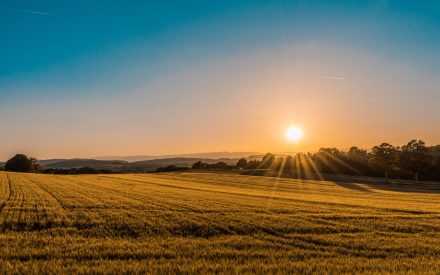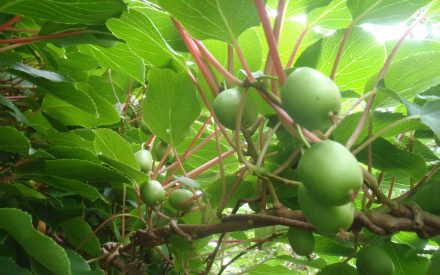This article is for educational purposes only, does not create an attorney-client relationship, and is not a substitute for competent legal advice by an attorney licensed in your state. The checklists and forms are provided only as general guidance and are not exhaustive. Suggested terms may be unnecessary in all circumstances. The authors strongly suggest that all parties consult with their own attorney when entering into or evaluating a lease agreement.
It is important to consider how and when a farmland lease may end. State law provides default rules for termination in the event that a landlord and tenant fail to discuss and document this topic. However, these defaults may not be to the liking of landlord and tenant.
A lease with a defined term ends at the end of the term unless otherwise stated in the lease.
For what other reasons may a lease or tenancy be terminated and when?
Table 1.B.1: Written Lease
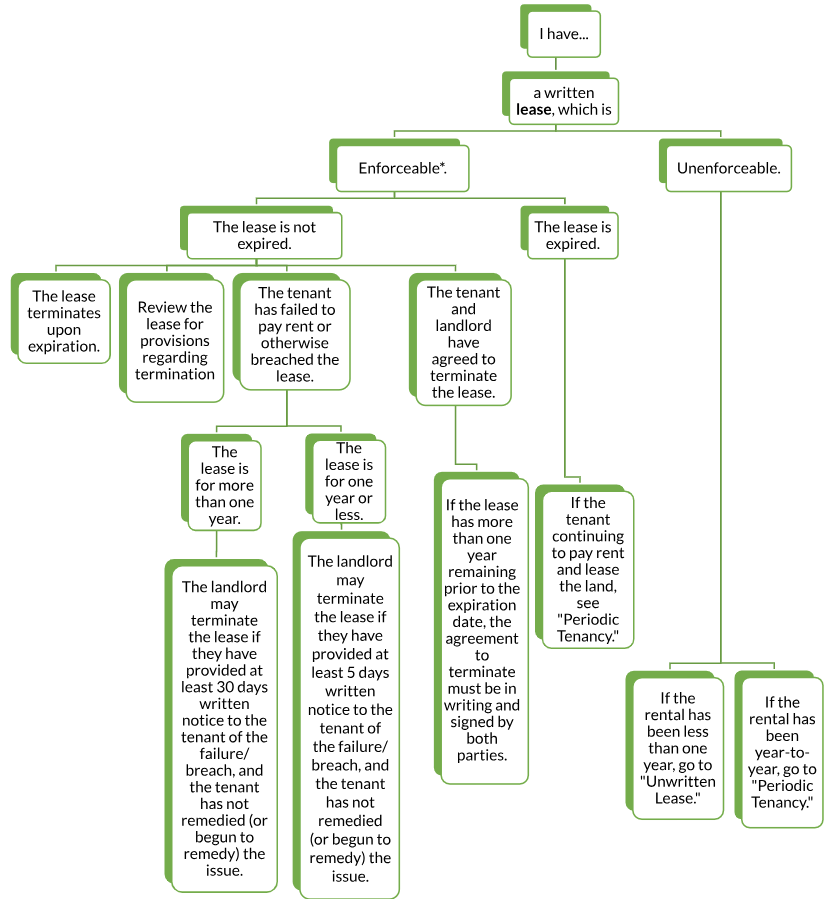
Unsure if your lease is enforceable? Return to “Is My Farmland Lease Enforceable?” to determine if your lease is likely enforceable.
Table 1.B.2: Unwritten Lease
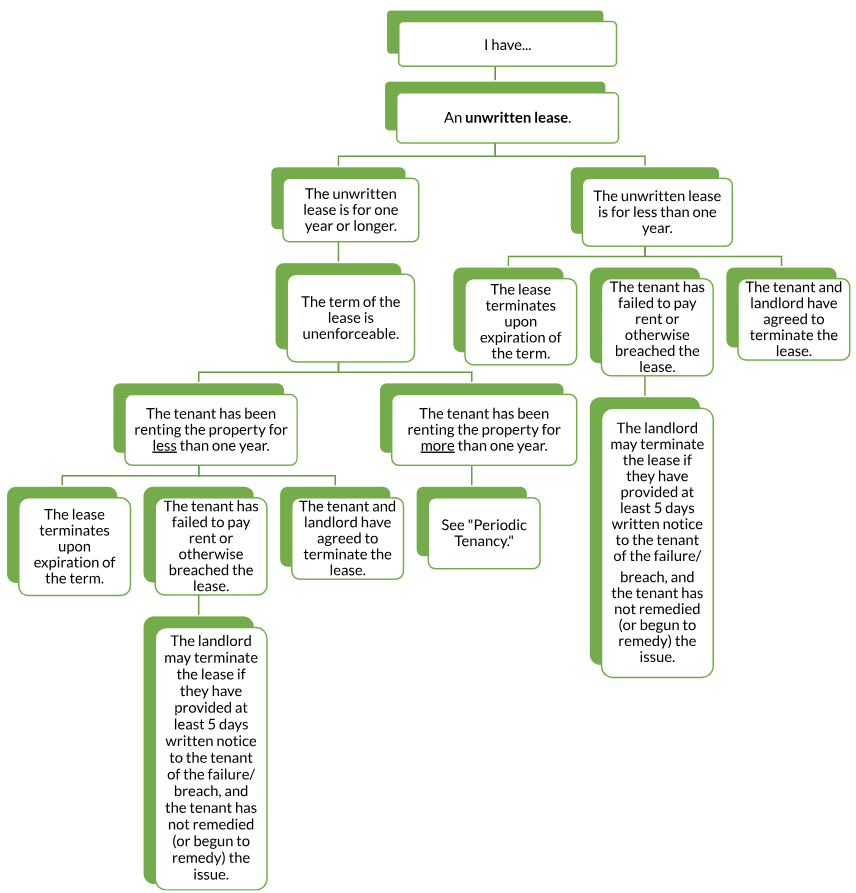
Table 1.B.3: Periodic Tenancy
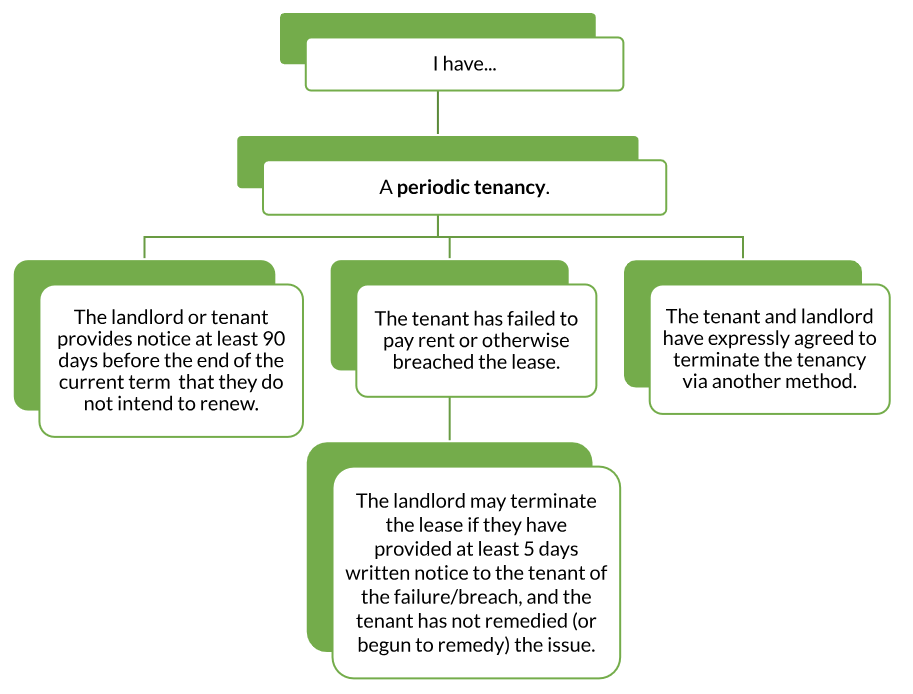
Crops Upon Termination – The Doctrine of Emblements
Sometimes a lease terminates before a crop can be harvested. Imagine this scenario: The farming tenant in a periodic tenancy planted corn on the rental property in spring. In August, the landlord gave notice that they would be terminating the lease at the end of the term. In this case, we’ll say that is Dec. 31. Unfortunately, heavy rainfall occurred in the fall season, and the rental property doesn’t drain well. Who has a right to harvest the crop if it’s not harvested by the time the lease terminates?
It depends. The “Doctrine of Emblements” addresses this issue in many states, but Wisconsin courts’ recognition and application of the doctrine is limited. In Wisconsin, growing crops which cannot be removed from the ground may be considered part of the real estate on which they are grown.1 However, they can be legally severed, even if not physically removed. Perennial crops such as hay or ginseng, are also considered part of the real estate. Conversely, matured crops which are ready to be harvested are considered the personal property of the tenant.
What can a farm tenant do? Re-entry onto a property following termination of a tenancy may result in a holdover situation or trespassing dispute. Farm tenants planting perennial crops should consider a lease which protects the longevity of their investment in the crop. This is also an important consideration for tenants planting winter crops or winter cover crops, especially if planting will occur before the landlord’s opportunity to give a 90 day notice of termination has expired. A written lease can resolve the confusion around this issue by providing terms for a right of entry to harvest for a period of time following termination, compensation for growing crops if they are to stay with the property, and/or dispute resolution.
1 Simenak v. Nematz, 120 Wis. 42 (1903)





